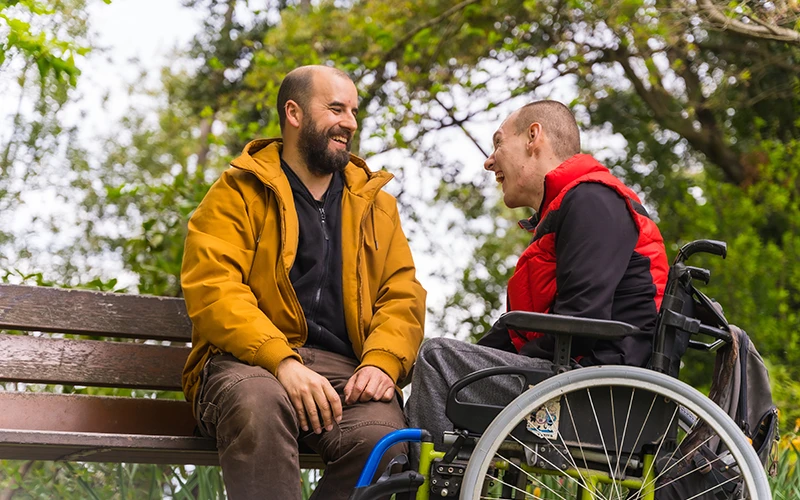From Kaiser Health News —
Thinking about the future makes Courtney Johnson nervous.
The 25-year-old blogger and college student has autism and several chronic illnesses, and with the support of her grandparents and friends, who help her access a complex network of social services, she lives relatively independently in Johnson City, Tennessee.
“If something happens to them, I’m not certain what would happen to me, especially because I have difficulty with navigating things that require more red tape,” she said.
Johnson said she hasn’t made plans that would ensure she receives the same level of support in the future. She especially worries about being taken advantage of or being physically harmed if her family and friends can’t help her — experiences she’s had in the past.
“I like being able to know what to expect, and thinking about the future is a bit terrifying to me,” she said.
Johnson’s situation isn’t unique.
Experts say many people with intellectual and developmental disabilities do not have long-term plans for when family members lose the ability to help them access government services or care for them directly.
Families, researchers, government officials, and advocates worry that the lack of planning — combined with a social safety net that’s full of holes — has set the stage for a crisis in which people with disabilities can no longer live independently in their communities. If that happens, they could end up stuck in nursing homes or state-run institutions.
“There’s just potential for a tremendous human toll on individuals if we don’t solve this problem,” said Peter Berns, CEO of the Arc of the United States, a national disability-rights organization.
About one-quarter of adults in the U.S. live with a disability, according to the Centers for Disease Control and Prevention. Nearly three-quarters of Americans with disabilities live with a family caregiver, and about one-quarter of those caregivers are 60 or older, according to the Center on Developmental Disabilities at the University of Kansas.
But only about half of families that care for a loved one with disabilities have made plans for the future, and an even smaller portion have revisited those plans to ensure they’re up to date, said Meghan Burke, an associate professor of special education at the University of Illinois in Urbana-Champaign.
“Engaging in it once is good, right? But you can’t only engage in it once,” she said. “It’s a living document, because things change, people change, circumstances change.”
…
Philip Woody feels as though he has prepared pretty well for his son’s future. Evan, 23, lives with his parents in Dunwoody, Georgia, and needs round-the-clock support after a fall as an infant resulted in a significant brain injury. His parents provide much of his care.
Woody said his family has been saving for years to provide for his son’s future, and Evan recently got off a Medicaid waitlist and is getting support to attend a day program for adults with disabilities. He also has an older sister in Tennessee who wants to be involved in his care.
But two big questions are plaguing Woody: Where will Evan live when he can no longer live at home? And will that setting be one where he can thrive?
“As a parent, you will take care of your child as well as you can for as long as you can,” Woody said. “But then nobody after you pass away will love them or care for them the way that you did.”
Continue reading at KHN.org.
Find an Elder Law or Special Needs Law Attorney

